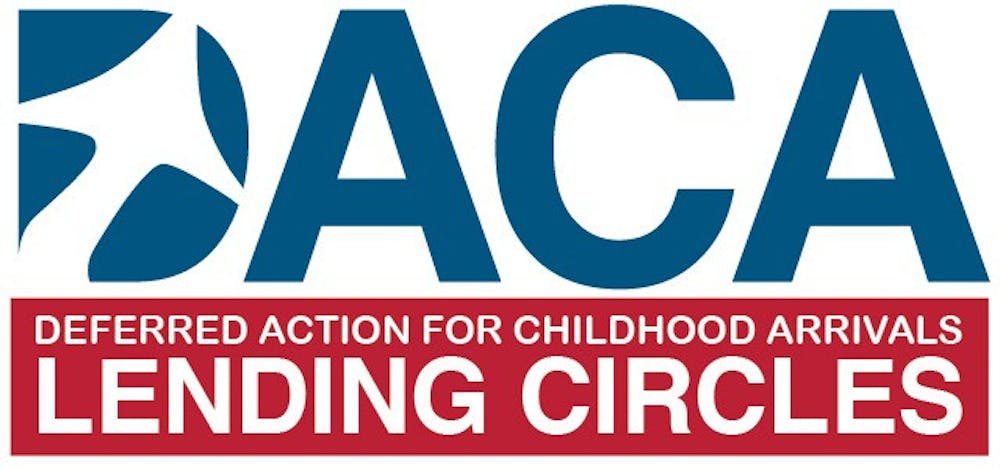*Last names have been withheld per request
Emma was 3 years old when her family moved to the United States and grew up believing she was a citizen.
Before she realized her status in America, she took pride that she had been born in Mexico. It wasn’t until high school that she realized she was an immigrant who was living in the U.S. illegally, which led her pride to evolve into confusion.
“I could never be American enough and I could never be Mexican enough,” Emma said, “It was like I had to choose between two doors, but I didn’t have a key to either of them.”
In 2012, Deferred Action for Childhood Arrivals (DACA) was created by Barack Obama.

DACA allowed immigrants who were brought over as children to pursue jobs, schooling and have protection against deportation. Deferred Action for Childhood Arrivals has allowed Emma to gain a bachelor’s degree at IUPUI.
According to iAmerica, in 2017 President Donald Trump ended the Deferred Action for Childhood Arrivals program, however, it stayed in effect because of federal judges blocking it from being ended. According to the NILC, the Supreme Court will decide on DACA’s status by June 2020.
Emma thinks about her DACA status every day, she struggles with her status as an American, her finances and the future.
Emma refers to herself as an American and grew up believing she was one.
“I know American history, I know the community, the politics, the language, the pride,” Emma said, “I think what makes me American is fighting for what I believe in.”
Emma’s friend, Joshua, has known her for eight years and found out she was a DACA recipient a few years ago. He sees her as an American citizen because she has lived here for most of her life and cares about the country.
“She's just as hard-working, if not even more than many people I've met,” Joshua said. “She cares about what's going on in the country and its politics.”
As with many other immigrant children, Emma struggled to pay her way through college.
“Thank God I'm done [with college],” Emma said, “There aren't enough resources to help out students like me. We need more accessible funding.”
According to the office of Federal Student Aid, Deferred Action for Childhood Arrivals students are not eligible for federal student aid.
Besides having had to pay for college without federal aid, Emma also has to renew her DACA status every two years at the cost of $495.
Along with this, U.S. Citizenship and Immigration Services has proposed increasing the fee to $765, which is a concern for many young, low-income college student recipients like Emma.
Meghan, Emma’s cousin, grew up with her and has seen how the cost of being a DACA recipient impacts Emma.
“It infuriates me knowing the government is taking advantage of these people,” Meghan said, “Making them pay hundreds of dollars to give them the right to work and have an education.”
Along with understanding the price of being a Deferred Action for Childhood Arrivals student, Meghan has seen the hard work that has to be put in to remain a DACA recipient.
“She is crazy studious and works non-stop,” Meghan said, “She's paying so much just to be able to work and pursue her education.”
While struggling with her current finances, Emma also has to think about her future in this country. She lives in fear of deportation, future jobs, and school. After Donald Trump’s election, her family got together to discuss what would happen to the children, houses, belongings if one of them were deported.
“Would I get my degree? Can I still work? Do I have to start over?” Emma said, “After Trump’s election, I honestly felt numb. I knew he was gonna try to take DACA away, which meant he was taking away my future.”
Joshua explained how being a Deferred Action for Childhood Arrivals student shows her hard work.
“Despite the stress and fear that's arisen in her, she never once stopped fighting for what she wanted,” Joshua said. “Even to this day she is moving forward and showing the boundless determination she has.”
Although Emma has graduated, these concerns continue to impact other DACA students studying at IUPUI. Karina Garduno, the assistant director for Multicultural Programming and the DACA point person for IUPUI and IUFW, said that IUPUI has several resources available to DACA students.
“We have the daca.iu.edu website which has a variety of information from updates on what is happening with DACA, information that will help with hiring an attorney, as well as information about financial resources,” Garduno said.
Garduno said she is always willing to help answer any questions that DACA students might have during their time at IUPUI.
Along with the IUPUI student organization “Dreamer’s Alliance: United as One” as a resource for helping alleviate the uncertainty DACA students feel, Emma emphasized the importance of DACA students’ mental health.
“Take care of yourselves,” Emma said. “A lot of you are fighting for our community and paving the way for others like us, but that shouldn’t mean your mental health should be an afterthought.”
Chancellor Paydar's statement on the termination of DACA





